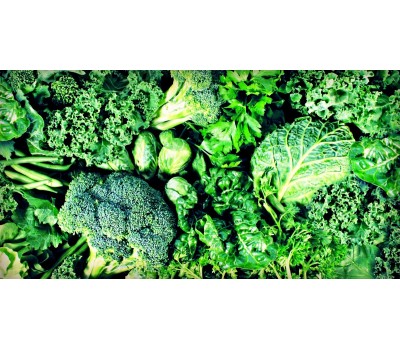The Special Benefits of Vitamin K

Because vitamin K is made by the human body, experts had long believed there was no need to supplement with it.
However, we now know that the amount we manufacture, while in some cases sufficient, is at other times less than optimal.
Vitamin K is a fat-soluble vitamin whose primary role is for blood clotting. That being said, research shows that it actually plays many different roles in the human body.
Below, we’ll dive into some its lesser-known health benefits.
There are Different Types of Vitamin K
The most commonly available form of vitamin K is phylloquinone (vitamin K1). Vitamin K1 is found in leafy green vegetables; however, its ability to be absorbed from this source is limited.
Menaquinone (vitamin K2), found in meat, eggs, and dairy products is available in supplemental form as MK-4 and MK-7.
Vitamin K2 has been shown to be significantly more bioavailable than vitamin K1 and remains in the body for longer periods of time.1
Vitamin K is Needed for Healthy Bones and Arteries
While calcium is critical to bone health, its presence in the arteries can lead to atherosclerotic plaque. Vitamin K is the link that helps keep calcium in bone rather than blood vessels.
The calcium-regulating protein matrix-Gla (MGP), which inhibits arterial calcification, requires a chemical reaction called carboxylation to take place. This cannot be accomplished without vitamin K.
Insufficient vitamin K may lead to impaired activation of MGP in the arteries, resulting in calcium being deposited in arterial walls.2, 3
Osteocalcin, also known as bone Gla protein, is also dependent upon vitamin K. Reduced activation of osteocalcin results in decreased bone formation.4
So, when vitamin K is lacking, calcium is less likely to be deposited in the bone and more likely to end up in the arteries, resulting in arterial calcification accompanied by osteoporosis - a process labeled the "calcification paradox."5
Vitamin K Protects Against Cancer
Having a high intake of vitamin K, particular vitamin K2, could protect against cancer.
The results of a study involving 24,340 participants found a 28% lower risk of dying from cancer among men and women with a high intake of vitamin K.6
In another study, people whose vitamin K1 intake was among the top 25% had a 46% lower risk of dying from cancer and a 36% lower risk of dying from any cause over a median of approximately 5-year period.7
Directions for Vitamin K Use
Vitamin K is truly a special vitamin and worthy of the recent recognition it has received. If you choose to supplement with it, note that it's best taken with a fat-containing meal!


Social Login